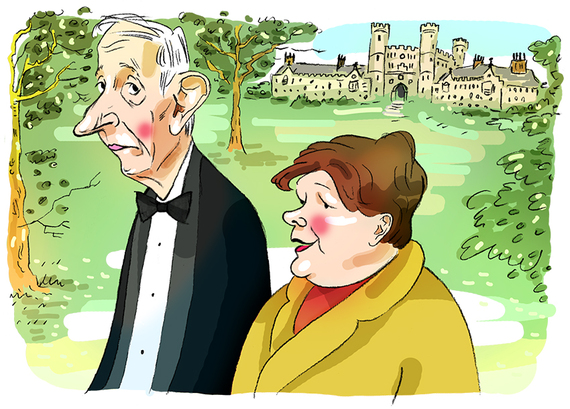Unfortunately, genius often has a dark side. In the university town of Princeton, NJ, where smart people gather like exotic butterflies, no one thinks twice about it. Recently I was seated at a long dinner next to a mathematician who for the entire evening spoke not a word to me, avoided looking at me, and ate not a single bite of the dinner served. Then, as he left, he courteously bowed to me and thanked me for a wonderful evening.
Everyone here knows similar bizarre and sad stories of celebrated mathematicians. One was the logician Kurt Gödel, who was paranoid. He was so afraid of being poisoned that he would permit his food to be prepared for him only by his wife, Adele. He wound up in the Princeton hospital and, after six months, died -- essentially of starvation.
Gödel's close friend, Albert Einstein did not make it much easier on the home front. To salvage his marriage to Mileva, with whom he had two sons, he drew up a contract for her. It said, among other things, that she should expect "no intimacy from him."
After the inevitable separation, he barely saw his first family again.
John Nash began his fight against mental illness when his wife Alicia was pregnant. Nash showed increasingly strange behavior, as described in the book and movie ,A Beautiful Mind. He was put into a mental hospital when Alicia was pregnant. When their son was born, she did not give him a name for a year, because she wanted John to participate fully in that decision.. She divorced him when their son was a toddler, but, after he wandered homelessly around Princeton, she took him back into her home seven years later out of a combination of compassion and loyalty.
When I first lived in Princeton 25 years ago, Nash was still trapped in his delusions. I often saw him riding the shuttle train from Princeton to near his house, always wearing the same brown and yellow plaid shirt. Year after year, he would go back and forth on the train all day long. Few people knew that he had made revolutionary discoveries in game theory and mathematics.
With Alicia's help, Nash eventually triumphed in the fight against the voices in his head. They remarried and were inseparable.
But Alicia, a physicist herself, not only had to contend with a sick man, but also with their son Johnny, a mathematician, who also suffers from schizophrenia. I spoke to her just before her departure to Oslo, where her husband would receive the Abel Medal, the highest prize in the world of mathematics. She told me that, after a strange premonition, she had finally arranged accommodation for Johnny in case something happened to them. At 56, he still lived with his parents in the same house opposite the train station.
Tragically, the Nashes were both killed in a traffic accident on the way home from Norway. Afterwards, the world praised Nash's seminal contributions to economics and mathematics. But the private service at St. Paul's Church on Nassau Street, which I attend, is touchingly small. Sitting in a pew by himself is Johnny, now an orphan. After the priest blesses the two caskets, the son stands nearby, motionless. When I later leave the church, I see a taxi parked in front of it. I look through a window and see Johnny, sitting by himself in the back seat. In his hand he holds a notebook in which he is busily scribbling, in a remarkably regular handwriting. The page is full of formulas.
